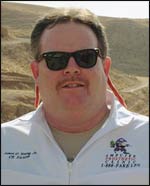
Support authors and subscribe to content
This is premium stuff. Subscribe to read the entire article.
Login if you have purchased

This is premium stuff. Subscribe to read the entire article.
East Tennessee State University will host a ribbon-cutting ceremony in June to celebrate the completion of its newly renovated lab...
Read more
© 2024 The O&P EDGE